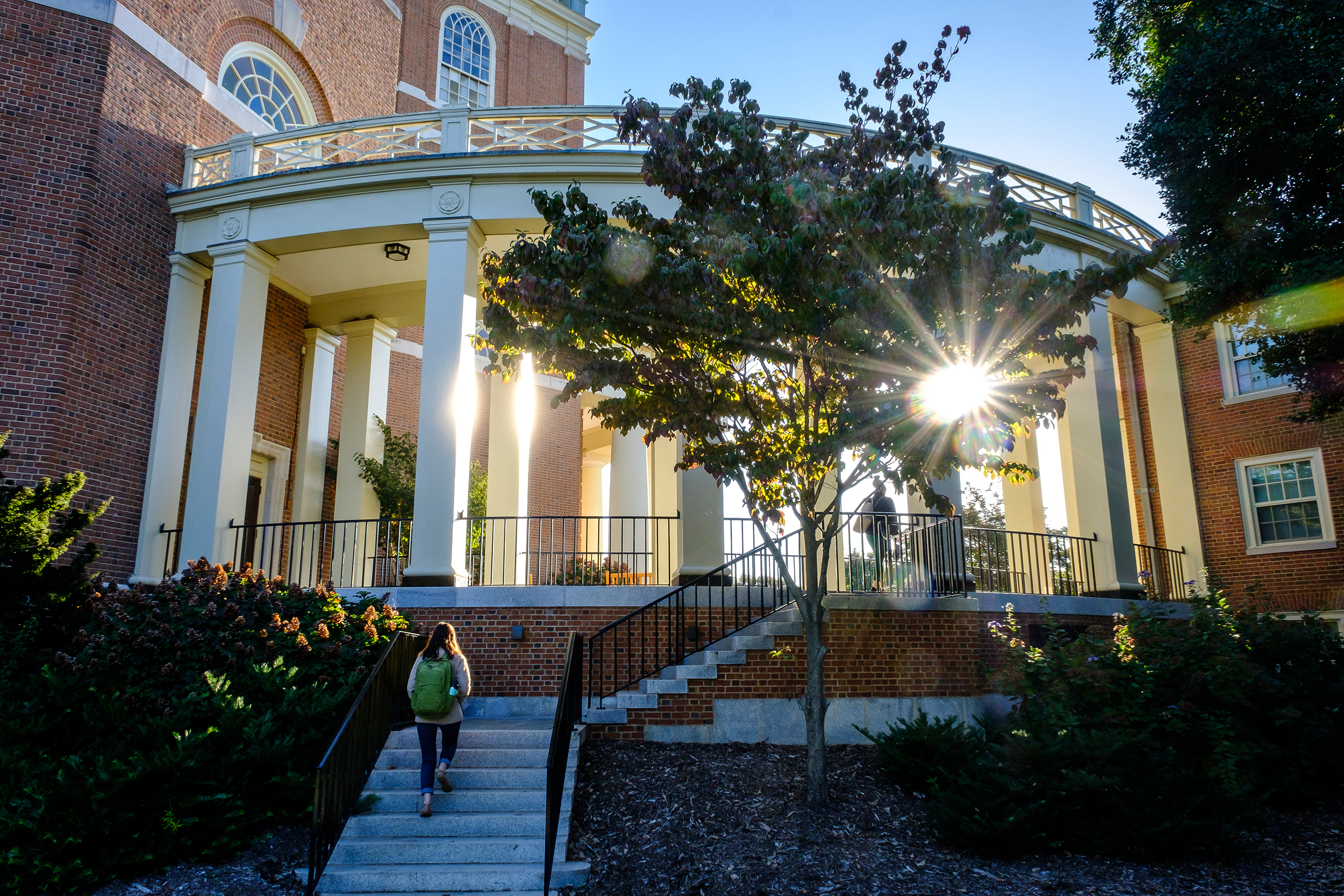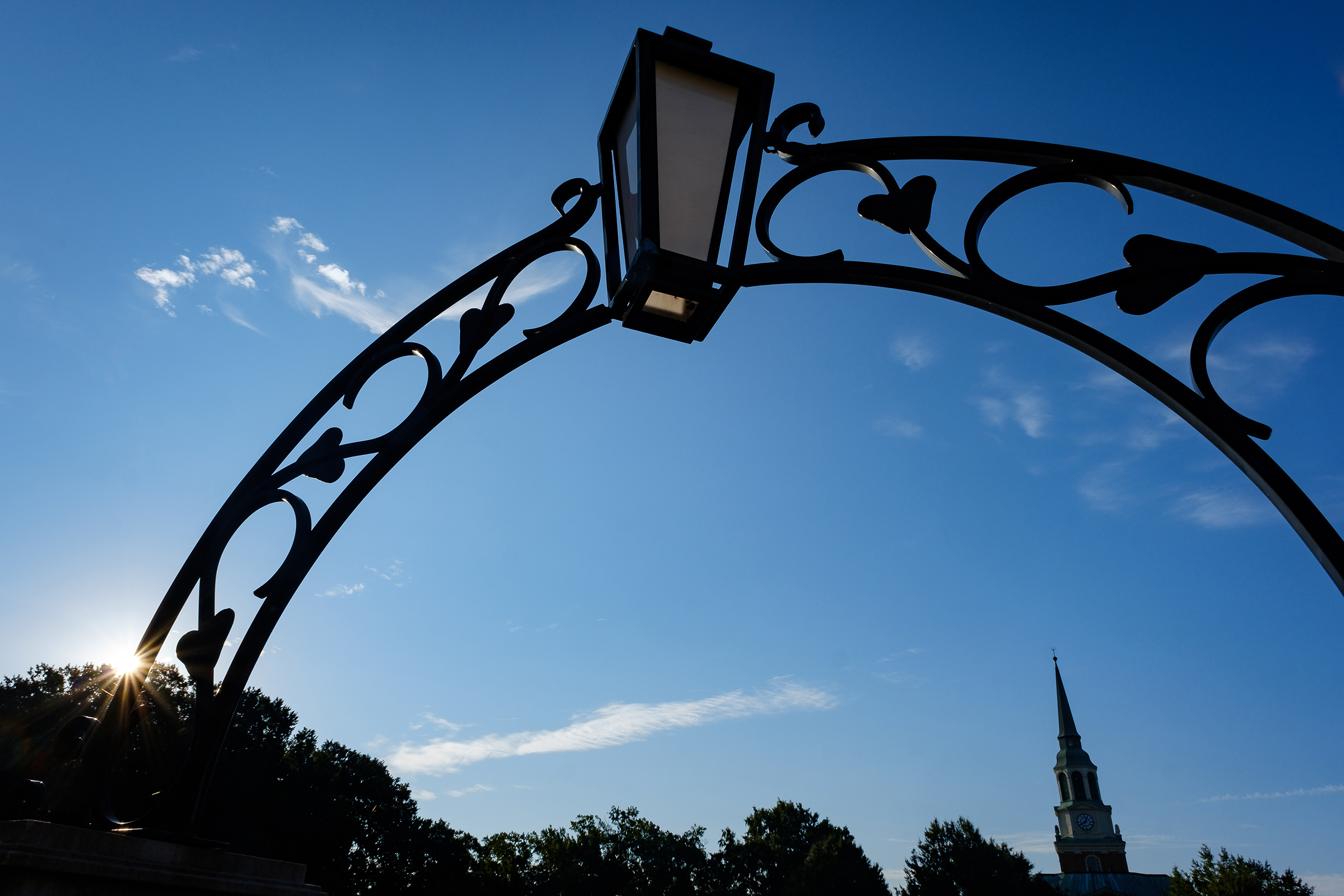Vocation Exploration
Eight students interested in careers in public service learned the joys and challenges of helping the poor, the wrongly accused, and new immigrants during internships at local nonprofit organizations this summer. The internships were designed to give students practical experience and to help them determine how they could best meet their vocational goals of serving the community.
The internships, officially called the Community Engagement Internships, were sponsored by the University’s Pro Humanitate Center and funded by a grant from the Lilly Foundation.
Senior sociology major Jessica Armstrong, who worked at Crisis Control Ministry, found one aspect of her internship — interviewing clients who needed help — to be emotionally draining. “The experience helped me move closer toward finding my vocation. I found that working directly with clients put me on emotional overload, so now I’m thinking about different ways I can work to alleviate the challenges women and children face. My main focus in life hasn’t changed, but now I know pursuing a graduate degree in social work may not be the right course for me. I’m finding the business end of nonprofit work may be my calling.”
Teddy Aronson, a junior English major, spent his internship at El Buen Pastor Latino Community Services, which offers tutoring programs for children and other programs to help Latino families adapt to their new lives in Winston-Salem. “I’ve had opportunities to see first-hand how children help their parents assimilate into a new culture, and how parents sometimes struggle with depending on their children for help communicating.”
Ryan Niland, a senior religion major who worked with the Darryl Hunt Project and the law school’s Innocence Project, found out what it felt like to be isolated because of his race and economic status. The Darryl Hunt Project and the Innocence Project advocate for judicial reform and work with individuals who have been wrongly incarcerated.
“My race was never an issue for me until I began to work closely with people different than myself,” says Niland. “I realized that I don’t know what it’s like to be black or poor or to feel powerless, and that I have to learn to see things from other perspectives.”
During his internship, Niland observed difficult meetings between those accused of crimes and attorney Mark Rabil, co-director of the Innocence Project and assistant capital defender for Greensboro and Winston-Salem. Niland says that helped him consider his vocational goals more realistically. “I found myself exploring my reactions to confrontation and wondering how the discomfort I felt during these heated discussions might affect my desire to pursue law as a career, or at least to more carefully consider the kind of law I might want to practice.”
At The Maya Angelou Center for Health Equity at Wake Forest University Baptist Medical Center, senior Stephen Edwards had his preconceptions about health issues challenged when he attended a focus group for people with Type 2 diabetes. “It’s a huge disservice to those in the community, because we need to understand the root of a problem before we can begin to address it,” says Edwards, an economics major. “Living in a community with no restaurants, an inadequate grocery store, and little money can lead to diabetes, and throwing canned goods at the problem is not going to break the cycle.”
As part of the program, students met weekly to discuss their experiences with Linda Dunlap, associate director of the Pro Humanitate Center, and David Yamane, associate professor of sociology. The students also received nonprofit business management instruction from business professor Cynthia Skaar.
“There’s a difference between being exhausted because you’ve had an exciting and fulfilling day, and being exhausted because the kind of work you are doing is wearing on you emotionally,” says Dunlap. “Having these experiences helped the students to consider how to use their talents and gifts to help others in ways that are fulfilling to themselves as well as the world in which they will be living.”
Categories: Community Impact, Experiential Learning, University Announcements
Media Contact
Wake Forest News
media@wfu.edu
336.758.5237



